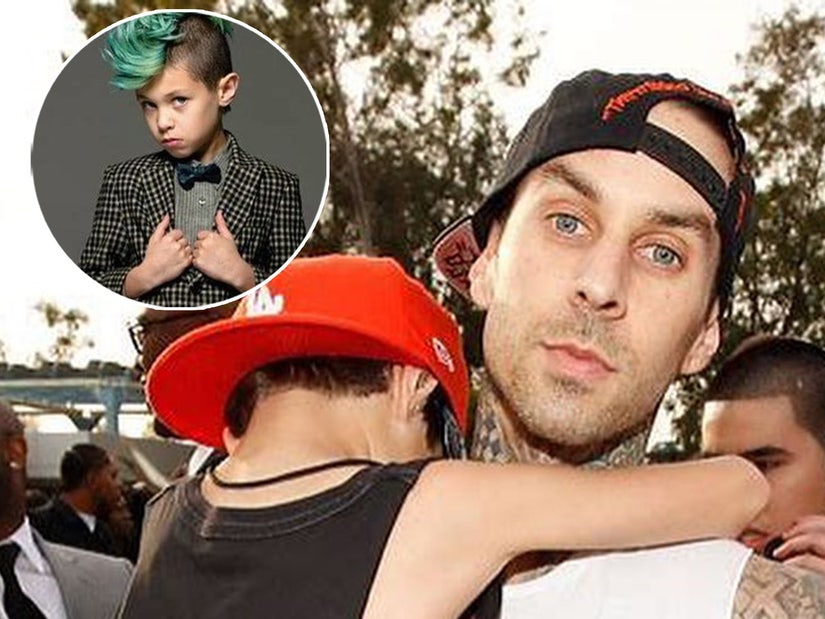"It was awful, and I went through heightened OCD, heightened ADHD and heightened anxiety, all while disassociating and feeling like I was in a video game," said Barker of his struggles.
Landon Barker, son of Blink-182 drummer Travis Barker is opening up about his mental health struggles and alcohol use and how it has inspired his new music.
Barker, 20, spoke to People about his inspiration for the lyrics he wrote for Machine Gun Kelly’s “Die in California.”
“It was kind of like a song that started out with an idea, something about not liking the person that you used to be,” began Barker. “But basically, it’s like a mental health song, kind of going through it, but it just formed into what it is today, naturally and supernaturally.”
The singer also shared his experience with derealization, or “a disorder that causes someone to feel detached from their thoughts and body,” which Barker posted about last year.
“It originally started with a bad habit with alcohol,” revealed Barker. “I was abusing it and just abusing that substance, and then one day it just shocked me, and I had gone through that for months.
“It was awful, and I went through heightened OCD, heightened ADHD and heightened anxiety, all while disassociating and feeling like I was in a video game,” he continued.

Landon Barker Reacts to Kourtney Kardashian and Dad Travis Barker Having Baby Boy
“I was watching my whole entire life through a movie screen. It was honestly awful.”
Barker, who shared that he loves “to spread awareness about suicide and talk about it” does so because “if you hold it in inside, it’s a lot harder, and I feel like all the messages that I got when I posted about it honestly made me feel better.”
“Looking to the public for support and more knowledge was honestly comforting for me and letting people know truly who I am, even on my phone through a social media platform was actually kind of helpful for me,” he shared.
Barker revealed that it was a concussion that got him to kick his alcohol abuse and face the reality of his situation.
“I got a concussion and I hit my head so hard that I actually couldn’t drink anymore around this time last year,” said Barker. “When I got my concussion, I kind of just had to deal with it and I would just, I don’t know, I just hated life for three or four months. It was pretty awful.”
“I remember I would just go to the hospital once a week just because I would have such bad panic attacks from everything that was going on,” he added. “The disassociation happened first and then it all just got worse when I went through my concussion.”
Despite his struggles, Barker shared that “eventually when you get through and get to the other side of everything and see the light in what you have and the people around you, it’s honestly the biggest inspiration to keep going out of everything.”
If you or someone you know is struggling with depression or has had thoughts of harming themselves or taking their own life, get help. The National Suicide Prevention Lifeline (1-800-273-8255) provides 24/7, free, confidential support for people in distress.
If you or someone you know is struggling with substance abuse, get help. The Substance Abuse and Mental Health Services Administration (SAMHSA) National Helpline (1-800-662-4357) provides 24/7, free, confidential support for people in distress.

Source: Read Full Article


